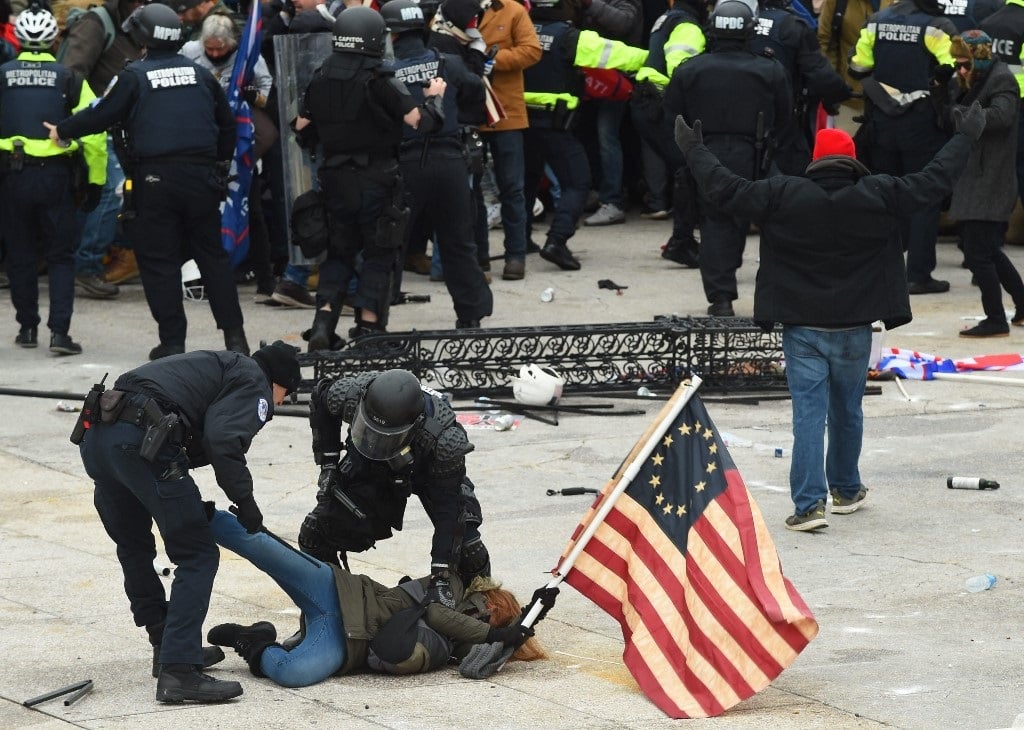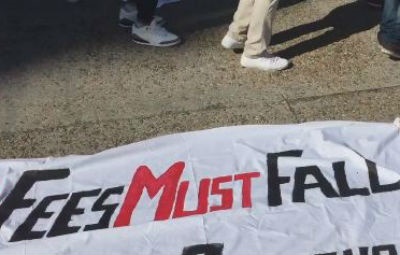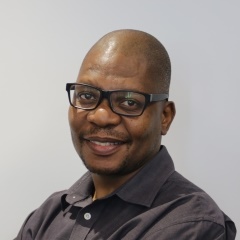
This week, the world was aghast as we witnessed the invasion of the Capitol building in Washington, DC – the heart of the US’s almost 250-year-old democracy.
As we have been programmed never to expect such scenes from the capitals of developed nations, let alone the US, shock reverberated across the globe.
With South Africa’s democracy just 27 years old, questions were being rightly asked about whether we could withstand the terrors that the Donald Trump presidency had wrought on his country – terrors that culminated in this week’s ugly events.
Read: Trump told his mob of supporters to fight – and they did
The domestic terrorist attack and attempted coup were perpetrated by a mob of thousands of right-wing fascists who believe their nascent Reich should have been allowed to be in power for 1 000 years, and that their current Führer cannot be subjected to the norms of a modern democracy.
Our shock belied our short memory. We forget that, in October 2015, hundreds of student activists, operating under the banner of #FeesMustFall, broke through the gates and perimeter of the parliamentary precinct in an attempt to storm the legislature.
Inside the National Assembly chamber, then finance minister Nhlanhla Nene was supposed to deliver the medium-term budget policy statement (yet another dose of bad news in an economy that was being strangled by Jacob Zuma and his voracious vultures).
It was from this suffocating fiscus that the #FeesMustFall activists wanted Nene to miraculously find money to fund tertiary education for all.
And so the young activists, who had been romanticised as revolutionaries by themselves and opportunistic politicians, battled the police outside on the cobbled streets of Parliament. The police pushed back with stun grenades and tear gas. Many of the rioters were bundled into police vans and taken off to be charged with public violence.
These would-be revolutionaries would wail about brutality, as they had when police had intervened throughout that violent year to stop the trashing of campuses. In that year, the hooligans we called revolutionaries had violently disrupted lectures; vandalised lecture halls; set buildings and other properties ablaze; destroyed valuable equipment and resources; and basically brought teaching and learning to a halt.
In what could have been one of the lowest moments of those protests, a group of them was intercepted on one of the campuses as they were on their way to burn down a resource centre that housed some archives that included material from the Rivonia Trial. Nothing was sacred.
Nothing was sacred because we had spent the previous decade normalising the abnormal. In their bid to expedite the removal of Thabo Mbeki from the presidency of the governing party and the republic, a great chunk of the ANC leadership had banished norms and embraced hooliganism.
So much so that when the chief hooligan took the reins of government in 2009, the rule book had long been thrown out of the window. He would spend the next decade entrenching this rule-free environment, something that allowed the state capture project to thrive.
The youngsters who wantonly trashed campuses and attempted to invade the halls of Parliament were operating in conditions that were fertile ground for the growth of delinquency.
Read | Mondli Makhanya: The glorification of hooliganism at SA’s universities
Those youngsters also created narratives about their noble place in South African history. The revolution had been betrayed in 1994 by the very generation that had brought us liberation and, therefore, the two-and-something decades since the dawn of democracy had been a sham.
Their struggle was not just about fee-free education. No, it was about resetting the clock – going back to 1994 and undoing the “damage” that Nelson Mandela and everyone who had sacrificed their lives for us had done. They were going to usher in “real liberation” and ensure that all the lofty economic pipe dreams contained in the Freedom Charter would be fulfilled. They were going to make the revolution great again.
To achieve this, the edifice of the current South African state – with its “neoliberal” and “colonised” institutions – had to be pulled down.
Enemies were identified, and included political figures, university management, capital and just about anything that didn’t make sense to these brave warriors of the new revolution. Coincidentally, these sentiments fitted in very nicely with the Bell Pottinger narrative being pushed by the purveyors of state capture.
They linger to this day, define the cleavages in the ANC and are the driving force behind a disruptive political party that has been defined as a standard-bearer for the dismantling of the current political order.
Trump rode to power on the back of a narrative that the US political order was not working for the ordinary (white) American. At is most basic, he tapped into the sentiment that contemporary America is the antithesis of what European immigrants of yester-century wanted it to be.
This sentiment, energised by the eight-year occupancy of the White House by a black family, has never been more ripe. Those lined up behind the Führer want to rip down institutions, even if it undoes democracy.
The resilience of the democracy proved too much for them this time around, hence the loss of the presidency and the Senate and – eventually – the moral high ground after the battle of the Capitol. But they have not gone away.
The extremists are a force that has been legitimised by someone who occupied the highest office in the country, and who will no doubt be a rallying point as they use the next four years to launch yet another assault on progress.
Our young democracy proved resilient enough to survive Zuma – something we should be proud of. But will it be strong enough to survive a narrative – pushed by a strong faction in the governing party and in other powerful quarters – that the very founding of our republic was fraudulent?
| ||||||||||||||||||||||||||||||
 |




 Publications
Publications
 Partners
Partners











